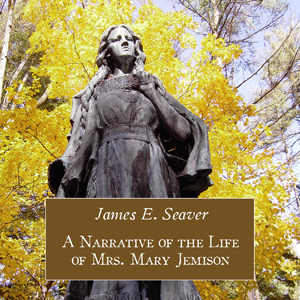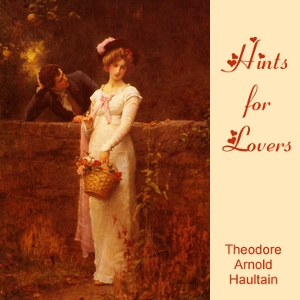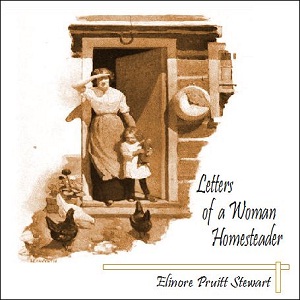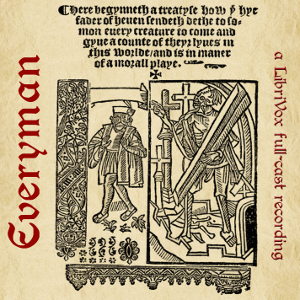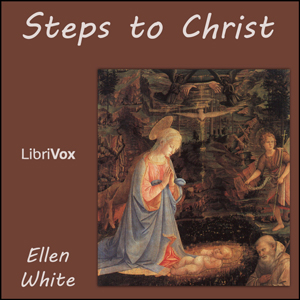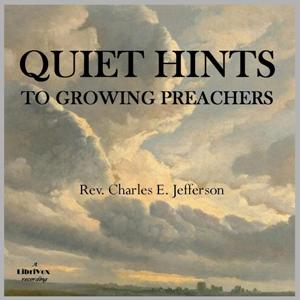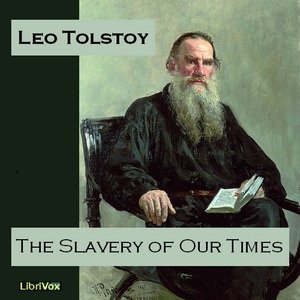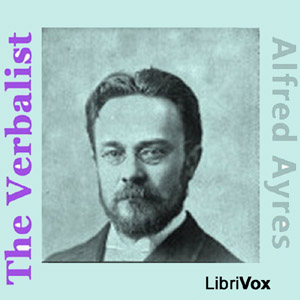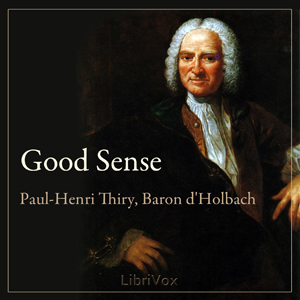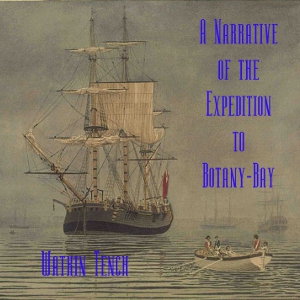1. Vorrede zu der Geschichte des Maltheserordens nach Vertot von M. N. bearbeitet. (1792)
2. Herzog von Alba bei einem Frühstück auf dem Schlosse zu Rudolstadt, im Jahr 1547. (1788)
3. Der Spaziergang unter den Linden (1782)
4. Vorrede zu dem ersten Theile der merkwürdigsten Rechtsfälle nach Pitaval. (1792)
5. Eine großmütige Handlung aus der neuesten Geschichte (1782)
6. Ueber Egmont, Trauerspiel von Goethe (1788)
7. Spiel des Schicksals (1789)
9 episodes
Mrs. Mary Jemison was taken by the Indians, in the year 1755, when only about twelve years of age, and has continued to reside amongst them to the present time. Containing an account of the murder of her father and his family; her sufferings; her marriage to two Indians; her troubles with her children; barbarities of the Indians in the French and Revolutionary Wars; the life of her last husband, and many historical facts never before published. (Summary by James Seaver)
20 episodes
Lysander Spooner (1808 – 1887) was an American individualist anarchist, entrepreneur, political philosopher, abolitionist, supporter of the labour movement, and legal theorist of the nineteenth century. Here he gives his views on the role of Governments in the private lives of their citizens (Summary by Annise)
3 episodes
Christopher Carson, or as he was familiarly called, Kit Carson, was a man whose real worth was understood only by those with whom he was associated or who closely studied his character. He was more than hunter, trapper, guide, Indian agent and Colonel in the United States Army....His lot was cast on the extreme western frontier, where, when but a youth, he earned the respect of the tough and frequently lawless men with whom he came in contact. Integrity, bravery, loyalty to friends, marvelous quickness in making right decisions, in crisis of danger, consummate knowledge of woodcraft, a leadership as skilful as it was daring; all these were distinguishing traits in the composition of Carson and were the foundations of the broader fame which he acquired as the friend and invaluable counselor of Fremont, the Pathfinder, in his expeditions across the Rocky Mountains. (Summary from the Introduction)
39 episodes

Rosa Luxemburg war eine bedeutende Vertreterin der europäischen Arbeiterbewegung und des proletarischen Internationalismus. Sie gehörte zu den Gründungsmitgliedern der KPD, deren Programm sie hauptsächlich verfasste.Während des ersten Weltkriegs verbrachte Rosa Luxemburg drei Jahre und vier Monate im Gefängnis, ein Jahr im Berliner Weibergefängnis (Barnimstraße), dann zwei Jahre und vier Monate in Berlin, Wronke und Breslau. Während dieser Zeit schrieb sie viele persönliche Briefe an Sophie Liebknecht, die einen tiefen Einblick in die starke Persönlichkeit dieser ungewöhnlichen Frau geben. Die Leser lernen "den Reichtum ihres unermüdlich quellenden Herzens kennen. Sie sollen sehen, wie diese Frau, über ihren eigenen Leiden stehend, alle Wesen der Schöpfung mit verstehender Liebe und dichterischer Kraft umfängt, wie ihr Herz in Vogelrufen erzittert, wie Verse beschwingter Sprache in ihr widerklingen, wie Schicksal und tägliches Tun der Freunde in ihr geborgen sind." (Aus der Einleitung)Am 15. Januar 1919, nur zwei Monate nach ihrer Freilassung wurde sie unter teils ungeklärten Umständen zusammen mit Karl Liebknecht von rechtsradikalen Freikorps-Soldaten ermordet.(Summary by Wikipedia and Hokuspokus)
5 episodes
An account given of the lives of five great naturalists (Hippocrates, Aristotle, Galen, Vesalius and Harvey) will not be found devoid of interest. The work of each one of them marked a definite advance in the science of Biology.
There is often among students of anatomy and physiology a tendency to imagine that the facts with which they are now being made familiar have all been established by recent observation and experiment. But even the slight knowledge of the history of Biology, which may be obtained from a perusal of this little book, will show that, so far from such being the case, this branch of science is of venerable antiquity. And, further, if in the place of this misconception a desire is aroused in the reader for a fuller acquaintance with the writings of the early anatomists the chief aim of the author will have been fulfilled. (Summary is the Preface to the book, adapted by Neeru Iyer)
5 episodes
"Hints for Lovers" is a thorough analysis of relationships between men and women, about everything that lovers should know, and delves deep into the psychology of men and women, and the philosophy of courtship, engagement, kissing, making love, marriage, etc, in a light-hearted tone, with refreshing humor. (Summary by Neeru Iyer)
14 episodes
Florence Scovel Shinn, an illustrator living in New York City, became a teacher of New Thought after a divorce. New Thought was a movement which holds the belief that individuals can create their own reality through intentional thoughts and prayer, much like the current Law of Attraction movement. The Game of Life and How to Play It is her first book, and is remarkable for being written by a woman and meant for a genteel female audience. (Summary from Wikipedia)
11 episodes
"While the world was young, nations could be founded peaceably. There was plenty of unoccupied country, and when two neighbouring patriarchs found their flocks were becoming too numerous for the pasture, one said to the other: "Let there be no quarrel, I pray, between thee and me; the whole earth is between us, and the land is watered as the garden of Paradise. If thou wilt go to the east, I will go to the west; or if thou wilt go to the west, I will go to the east." So they parted in peace.
(Excerpt)
37 episodes
Cat Tales is the first of a series of kid-friendly collections of animal stories and non-fiction. There'll be one or two grade-school-level texts on the animal, with eight-nine fiction works. Source for these is Project Gutenberg. (Summary by BellonaTimes)
10 episodes
A brief history of The Great War (World War I) designed for students in grades seven and eight. Special emphasis on European history leading up to the war, reasons and events leading to America's eventual entering the war, and possible ramifications of the war for future generations.
(Summary by James Christopher)
15 episodes
George Edward Moore, usually known as G. E. Moore, (1873 – 1958) was a distinguished and influential English philosopher. He was, with Bertrand Russell, Ludwig Wittgenstein, and (before them) Gottlob Frege, one of the founders of the analytic tradition in philosophy.
21 episodes

Cellini's autobiographical memoirs, which he began writing in Florence in 1558, give a detailed account of his singular career, as well as his loves, hatreds, passions, and delights, written in an energetic, direct, and racy style. They show a great self-regard and self-assertion, sometimes running into extravagances which are impossible to credit. He even writes in a complacent way of how he contemplated his murders before carrying them out. He writes of his time in Paris:
Parts of his tale recount some extraordinary events and phenomena; such as his stories of conjuring up a legion of devils in the Colosseum, after one of his not innumerous mistresses had been spirited away from him by her mother; of the marvelous halo of light which he found surrounding his head at dawn and twilight after his Roman imprisonment, and his supernatural visions and angelic protection during that adversity; and of his being poisoned on two separate occasions.
The autobiography is a classic, and commonly regarded as one of the most colourful; it is certainly the most important autobiography from the Renaissance.
Cellini's autobiography is one of the books Tom Sawyer mentions as inspiration while freeing Jim in The Adventures of Huckleberry Finn. (Summary adapted from Wikipedia by Karen Merline)
22 episodes
Pope’s Essay on Man, a masterpiece of concise summary in itself, can fairly be summed up as an optimistic enquiry into mankind’s place in the vast Chain of Being.
Each of the poem’s four Epistles takes a different perspective, presenting Man in relation to the universe, as individual, in society and, finally, tracing his prospects for achieving the goal of happiness.
In choosing stately rhyming couplets to explore his theme, Pope sometimes becomes obscure through compressing his language overmuch. By and large, the work is a triumphant exercise in philosophical poetry, communicating its broad and commonplace truths in superbly balanced phrases which remind us that Pope, alas, is one of the most quoted but least read writers in English:
“Hope springs eternal in the human breast: Man never is, but always To be Blest.”
(Summary by Martin Geeson)
5 episodes
Starters, main courses and desserts from around the world, one dish for every day of the year. From Turkey to China, from India to England, from Austria to Egypt, a wide variety of mouth-watering cuisines are represented. Each recipe is described in one short paragraph, making this book perfect for dipping into when you’re seeking inspiration on what to cook. (Summary by Lucy Perry)
12 episodes
This is a collection of short (15 minute or less readings) works in English suitable for a coffee break at work or a short commuter ride. The theme for this collection is Multi-Faith in various genres.(Summary by BellonaTimes)
10 episodes

Parkman has been hailed as one of America's first great historians and as a master of narrative history. Numerous translations have spread the books around the world. The American writer and literary critic Edmund Wilson (1895-1972) in his book "O Canada" (1965), described Parkman’s France and England in North America in these terms: "The clarity, the momentum and the color of the first volumes of Parkman’s narrative are among the most brilliant achievements of the writing of history as an art."Parkman's biases, particularly his attitudes about nationality, race, and especially Native Americans, has generated criticism. The Canadian historian W. J. Eccles harshly criticized what he perceived as Parkman's bias against France and Roman Catholic policies, as well as what he considered Parkman's misuse of French language sources. However, Parkman's most severe detractor was the American historian Francis Jennings, an outspoken and controversial critic of the European colonization of North America, who went so far as to characterize Parkman's work as "fiction" and Parkman himself as a "liar".Unlike Jennings and Eccles, many modern historians have found much to praise in Parkman's work even while recognizing his limitations. Calling Jennings' critique "vitriolic and unfair," the historian Robert S. Allen has said that Parkman's history of France and England in North America "remains a rich mixture of history and literature which few contemporary scholars can hope to emulate". The historian Michael N. McConnell, while acknowledging the historical errors and racial prejudice in Parkman's book The Conspiracy of Pontiac, has said: "...it would be easy to dismiss Pontiac as a curious perhaps embarrassing artifact of another time and place. Yet Parkman's work represents a pioneering effort; in several ways he anticipated the kind of frontier history now taken for granted.... Parkman's masterful and evocative use of language remains his most enduring and instructive legacy."(Summary adapted from Wikipedia by Karen Merline)
Part 1: Pioneers of France in the New World
Part 2: The Jesuits in North America in the 17th Century
Part 4: The Old Régime in Canada
Part 5: Count Frontenac and New France under Louis XIV
Part 6: Montcalm and Wolfe
Part 7: A Half Century of Conflict
40 episodes
Would you like to be rich? Yes? Well, who wouldn't.The Science of Getting Rich is a book written by the New Thought Movement writer Wallace D. Wattles. The book is still in print after almost 100 years. According to USA Today, the text is "divided into 17 short, straight-to-the-point chapters that explain how to overcome mental barriers, and how creation, not competition, is the hidden key to wealth attraction." (Summary by Diana Majlinger and Wikipedia)
18 episodes
The writer of the following letters is a young woman who lost her husband in a railroad accident and went to Denver to seek support for herself and her two-year-old daughter, Jerrine. Turning her hand to the nearest work, she went out by the day as house-cleaner and laundress. Later, seeking to better herself, she accepted employment as a housekeeper for a well-to-do Scotch cattle-man, Mr. Stewart, who had taken up a quarter-section in Wyoming. The letters, written through several years to a former employer in Denver, tell the story of her new life in the new country. They are genuine letters, and are printed as written, except for occasional omissions and the alteration of some of the names. (Publishers’ Note, May 1914)
26 episodes
This book is intended to give the reader an account of the origin and history of Hallowe'en, how it absorbed some customs belonging to other days in the year,—such as May Day, Midsummer, and Christmas. The context is illustrated by selections from ancient and modern poetry and prose, related to Hallowe'en ideas. (Summary by Ruth Kelley, from the Preface).
16 episodes
A General History of the Robberies and Murders of the most notorious Pyrates is a 1724 book containing biographies of contemporary pirates. It's author uses the name Captain Charles Johnson, generally considered a pseudonym.
The real identity of the author was thought by some scholars to be Daniel Defoe, although this has since been disputed. The publisher Nathaniel Mist or somebody working for him are other suggested authors.
In the first volume, "Johnson" sticks fairly close to the available sources, though he embellishes the stories somewhat. Nevertheless, the book was influential in shaping popular notions of piracy and provided the standard account of the lives of many individuals still famous in the 21st century.(Summary by Wikipedia)
42 episodes

English Synonyms and Antonyms is basically a vocabulary builder that students might use as they prepare for entrance or exit exams. Each entry gives a list of synonyms, followed by a paragraph that briefly explains or exemplifies the subtle distinctions between the listed words. The entries sometimes close with a few words on the prepositions that follow selected synonyms, but more often with a list of antonyms.
By "synonyms" we usually understand words that coincide or nearly coincide in some part of their meaning, and may hence within certain limits be used interchangeably, while outside of those limits they may differ very greatly in meaning and use. It is the office of a work on synonyms to point out these correspondences and differences, that language may have the flexibility that comes from freedom of selection within the common limits, with the perspicuity and precision that result from exact choice of the fittest words to express each shade of meaning outside of the common limits. (Summary by DSayers and the author from the entry "Synonymous")
68 episodes

After the bizarre textual antics of "Tristram Shandy", this book would seem to require a literary health warning. Sure enough, it opens in mid-conversation upon a subject never explained; meanders after a fashion through a hundred pages, then fizzles out in mid-sentence - so, a plotless novel lacking a beginning, a middle or an end. Let us say: an exercise in the infinitely comic.
"There is not a secret so aiding to the progress of sociality, as to get master of this short hand, and to be quick in rendering the several turns of looks and limbs with all their inflections and delineations, into plain words."
Sterne calls his fine sensitivity to body language (as we now term it) "translation". Much of the pleasure to be had from this wonderfully engaging book comes from his unmatched ability to extract random details from the chaos of experience to create comic turns imbued with Feeling. His Parson Yorick is the Sentimental Traveller: certainly a Man of Feeling, but one in whom "Nature has so wove her web of kindness, that some threads of love and desire are entangled with the piece..." (Summary by Martin Geeson)
25 episodes
Diese Sammlung ist ein Adventskalender und enthält für jeden Tag vom 1.-24. Dezember einen Text oder ein Gedicht. Viele haben einen Bezug zu Weihnachten oder zum Winter. (Summary by Sonja)
24 episodes
An introduction to Arizona from approximately a century ago. (Summary by BellonaTimes)
14 episodes
A Holy Day in 1495. Join the crowd streaming towards a temporary outdoor stage and be entertained (and maybe even instructed) by a performance of Everyman by the Guild of LibriVox Readers. Cast:(in order of appearance)Narrator - AnniseMessenger - ElliGod - Neeru IyerDeath - Denny SayersEveryman - Bob ShearmanFellowship - Tricia GCousin - Chris CaronKindred - David LawrenceGoods - Elizabeth KlettGood-Deeds - Marian MartinStrength - David ColeDiscretion - Laurie Anne WaldenFive-Wits - Barry EadsBeauty - Lucy PerryKnowledge - Arielle LipshawConfession - Ruth GoldingAngel - KalyndaDoctor - Cori Samuel "Let the Play Begin" (summary by Annise)
1 episodes
Ellen Gould White (1827 - 1915) was a prolific Christian writer, authoring 40 books in her lifetime. She was active in the Millerite movement, and was one of the principle founders of the Seventh Day Adventist Church.
Steps to Christ, first published in 1892, is her most popular book. It has been translated into more than 70 languages. The theme of the book is how to come to know Christ better. (Summary by Donald Hines)
13 episodes

The Tiruppavai is a collection of thirty stanzas (paasuram) in Tamil written by Andal, in praise of the God Tirumal or Vishnu. It is part of Divya Prabandha, a work of the twelve Alvars, and is important in Tamil literature. (Summary from Wikipedia)
ஆண்டாள் அருளிச்செய்தத் திருப்பாவை
பன்னிரண்டு ஆழ்வார்களில் ஒரே பெண் ஆழ்வாரான ஆண்டாள் (சூடிக்கொடுத்த சுடர்கொடி), திருமாலையே எண்ணி இயற்றிய இந்நூல் முப்பது பாசுரங்களைக் கொண்டது. பன்னிரண்டு ஆழ்வார்களின் தொகுப்பான திவ்யப்பிரபந்தத்தின் ஒரு முக்கியப் பகுதியாகவும், தமிழ் இலக்கியத்தில் மிக முக்கியமான நூலாகவும் இந்நூல் விளங்குகிறது.
திருமாலுக்கு உகந்த மாதமான மார்கழி மாதத்தில் அவருக்கு செய்வனவற்றைப் பக்தியுடன் செய்து வந்தால் அத்தனை அருளும் நம்மை வந்து சேரும் என்பது ஆண்டாளின் நம்பிக்கை. இதனால், காலையில் திருமாலை வேண்ட, உறங்கிக் கொண்டிருந்தத் தன் தோழிகளையும் இப்பாடல்களைப் பாடியே எழுப்பித் தன்னுடன் குளத்தில் குளிக்கவும், மலர்களைச் சேகரிக்கவும், மாலையாய்த் தொடுக்கவும், திருமாலைத் தரிசிக்கவும் அழைத்துச் சென்றார், ஆண்டாள்.
மார்கழி மாதத்தின் போது கன்னிப் பெண்கள் இன்னமும் இந்தப் பாடல்களைப் பாடித்தான் தனக்கு ஒரு நல்ல வாழ்க்கை அமைய வேண்டும் என்று வேண்டுகிறார்கள்.
(நீரு ஐயர் எழுதிய முகவுரை)
6 episodes
“It is, for that matter, self-evident that if one community decides in one fashion, another, also sovereign, in the opposite fashion, both cannot be right. Reasoning men have also protested, and justly, against the conception that what a majority in numbers, or even (what is more compelling still) a unanimity of decision in a community may order, may not only be wrong but may be something which that community has no authority to order since, though it possesses a civil and temporal authority, it acts against that ultimate authority which is its own consciousness of right. Men may and do justly protest against the doctrine that a community is incapable of doing deliberate evil; it is as capable of such an action as is an individual. But men nowhere do or can deny that the community acting as it thinks right is ultimately sovereign: there is no alternative to so plain a truth.”
- Hilaire Belloc
36 episodes
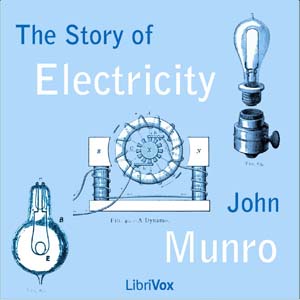
In the book's preface, the author writes: "Let anyone stop to consider how he individually would be affected if all electrical service were suddenly to cease, and he cannot fail to appreciate the claims of electricity to attentive study."In these days when we take for granted all kinds of technology - communications, entertainment, medical, military, industrial and domestic - it is interesting to learn what progress had been made in the fields of electricity and technology by the beginning of the 20th century.Including the dawn of hydro-electric power, the x-ray, the phonograph, the telephone and the wireless telegraph, this book explains the pioneering work of the men who made our modern world possible, and sets us wondering what the next century may bring - providing that we do not manage to destroy our planet in the meantime. The Gutenberg text of the 1915 edition (as recorded) does not have the benefit of the book's many diagrams. Also available, however, is an online book scan of the 1912 edition which includes the illustrations and coincides largely with the text recorded. (Summary by Ruth Golding)
13 episodes
A charming brief account of a two months' autumnal stay on the shores of the Lake of Geneva. Howells, who was there with his family traveling from England to Italy, has a sharp eye not only for scenery and architecture, but for people and customs, both Swiss and foreign. (Summary by Nicholas Clifford)
2 episodes
An autobiography of Helen Keller published when the author was still in her early 20's. The narrative reveals how her mind developed and matured until she began her studies at Radcliffe College (Summary by George Cooney)
23 episodes
A fascinating look back at the state of the art of chemistry 100 years ago, this book by James C. Philip, PhD, an assistant professor of chemistry at The Imperial College of Science and Technology, Kensington, provides a "description in non-technical language of the diverse and wonderful way which chemical forces are at work, and their manifold application in modern life" in 1910. Professor Philip relates many of the key chemical discoveries of early academic researchers in the context of the practical uses to which these discoveries were applied in the early 20th century. (summary by J. M. Smallheer)
31 episodes
Charles Edward Jefferson was pastor of the Broadway Tabernacle in Brooklyn, New York for 33 years. In Quiet Hints, published in 1901, he provided guidance to young preachers on what we would today call ministerial deportment, an old-fashioned word that refers to how a man carries himself, how he presents himself, his manners, his bearing, his habits, and his whole approach to life. Jefferson wrote in short, pithy statements that encapsulate practical truth in just a few words. (Summary by MaryAnn)
26 episodes
This little book shows, in a short, clear, and systematic manner, how the principle of Non-Resistance, about which Tolstoy has written so much, is related to economic and political life. (Summary by Aylmer Maude, Translator)
18 episodes
An Inquiry into the Nature and Causes of the Wealth of Nations is the magnum opus of the Scottish economist Adam Smith, published on March 9, 1776 during the Scottish Enlightenment. It is a clearly written account of political economy at the dawn of the Industrial Revolution, and is widely considered to be the first modern work in the field of economics. (Introduction from Wikipedia)This project was proof listened by mim@can, Betty M., and Barry Eads.
18 episodes
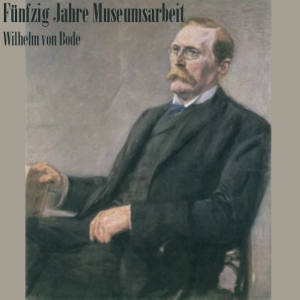
Wilhelm von Bode war ein bedeutender deutscher Kunsthistoriker und Museumsfachmann und gilt als der Mitbegründer des modernen Museumswesens. Bode war eine der zentralen Persönlichkeiten in der deutschen Kultur des späten 19. und frühen 20. Jahrhunderts. 1904 gründete er das Kaiser-Friedrich-Museum (heute Bode-Museum) auf der Museumsinsel in Berlin, war dort Generaldirektor der staatlichen Kunstsammlungen und schuf grundlegende Arbeiten zur Geschichte der deutschen, niederländischen und italienischen Malerei und Plastik. Aufgrund seines entscheidenden Einflusses auf die Entwicklung der Berliner Kunstsammlungen wurde er auch „Museums-Condottiere“ und „Bismarck der Berliner Museen“ genannt. 1889 bis 1914 leitete er ebenfalls die Neugründung der im deutsch-französischen Krieg vernichteten städtischen Kunstsammlungen der Stadt Straßburg.
In seinem Buch Fünfzig Jahre Museumsarbeit gibt Wilhelm von Bode einen Überblick von der Entwicklung der Sammlungen in Zeit 1872 - 1922, soweit er sie erweitert oder selbst ins Leben gerufen hat. Persönliche Erlebnisse hat er dort einfließen lassen, wo sie ihm von allgemeiner Bedeutung erscheinen.
(Zusammenfassung von Wikipedia und Wassermann)
10 episodes

Other People's Money and How the Bankers Use It is a collection of essays written by Louis Brandeis published as a book in 1914. The book attacked the use of investment funds to promote the consolidation of various industries under the control of a small number of corporations, which Brandeis alleged were working in concert to prevent competition. Brandeis harshly criticized investment bankers who controlled large amounts of money deposited in their banks by middle-class people. The heads of these banks, Brandeis pointed out, routinely sat on the boards of railroad companies and large industrial manufacturers of various products, and routinely directed the resources of their banks to promote the interests of their own companies. These companies, in turn, sought to maintain control of their industries by crushing small businesses and stamping out innovators who developed better products to compete against them.
Brandeis supported his contentions with a discussion of the actual dollar amounts -- in millions of dollars -- controlled by specific banks, industries, and industrialists such as J. P. Morgan, noting that these interests had recently acquired a far larger proportion of American wealth than corporate entities had ever had before. He extensively cited testimony from a Congressional investigation performed by the Pujo Committee, named after Louisiana Representative Arsène Pujo, into self-serving and monopolistic business dealing.
The book received great publicity at the time, and was widely lauded by legal academics. Attention to the book was amplified by Brandeis' nomination to the Supreme Court of the United States in 1916.(Summary by Wikipedia)
10 episodes
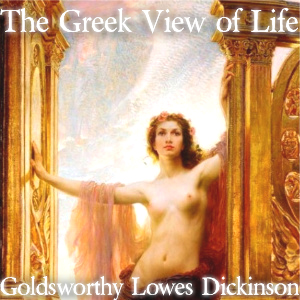
“With the Greek civilisation beauty perished from the world. Never again has it been possible for man to believe that harmony is in fact the truth of all existence.”
This elegantly-written work provides a splendid introduction to the Greeks of the classic period: how they thought, wrote, and organised their lives and loves. Although it dates from the 1890s, there is very little about it that has dated. To its author’s credit, the subject of “Greek love” is dealt with in a sane and factual context - despite the judicial assassination of Oscar Wilde going on in the background.
A Cambridge don much admired by his students (including E. M. Forster), Goldsworthy Lowes Dickinson belonged to the Apostles, a secret society with a strong ethic of male friendship. Alfred Tennyson and his beloved Arthur Hallam were early members. Dickinson is chiefly remembered as a historian and pacifist who played a significant part in the founding of the League of Nations. Inevitably, given his interests and intellectual background, he became a close associate of the Bloomsbury Group.
The Greek View of Life is no dry academic tome. It is a popularizing work in the best sense: accessibly written and illustrated with apt quotations given in sturdy translations, never in the original Greek. It is a joy to read.
(Introduction by Martin Geeson)
52 episodes
Osmun arranges usage problems alphabetically and treats certain areas in greater detail as he sees fit. For example, his first entry is A-AN (articles). His second is ABILITY-CAPACITY, in which he distinguishes between the meanings. The alphabetical arrangement continues through to YOURS. (Introduction by Bill Boerst)
10 episodes
Ellen Gould White (1827 - 1915) was a prolific Christian writer, authoring 40 books in her lifetime. She was active in the Millerite movement, and was one of the principle founders of the Seventh Day Adventist Church. The Desire of Ages, first published in 1898, tells the story of the life of Jesus Christ in loving detail. It is the third book in her five volume "Conflict of the Ages" series. (Summary by Donald Hines)
87 episodes
"I have to thank all the previous students of Shelley as poet and man--not last nor least among whom is my husband--for their loving and truthful research on all the subjects surrounding the life of Mrs.Shelley." -Lucy Madox Brown Rossetti
Mrs. Shelley is a biography of Mary Wollstonecraft Godwin Shelley, author of Frankenstein and other works, wife of Percy Shelley, daughter of Mary Wollstonecraft Godwin who penned The Vindication of the Rights of Women, and daughter of William Godwin, a philosopher and novelist. The life of this woman, who at nineteen wrote a story that has become a part of everyday culture, is its own story to tell. The author Lucy Madox Brown Rossetti was the daughter of the artist Ford Madox Brown and the wife of William Michael Rossetti of the Pre-Raphaelite Brotherhood. (Summary by A.L. Gramour)
29 episodes
In 1770, Baron D'Holbach published his masterpiece, "Systeme de la Nature", which for a long time passed as the posthumous work of M. de Mirabaud. That text-book of "Atheistical Philosophy" caused a great sensation, and two years later, 1772, the Baron published this excellent abridgment of it, freed from arbitrary ideas; and by its clearness of expression, facility, and precision of style, rendered it most suitable for the average student. This text is based on an undated English translation of "Le Bon Sens" published c. 1900. The name of the translator was not stated. (Summary from editor's preface)
21 episodes
The Education of Henry Adams records the struggle of Bostonian Henry Adams (1838-1918), in early old age, to come to terms with the dawning 20th century, so different from the world of his youth. It is also a sharp critique of 19th century educational theory and practice. In 1907, Adams began privately circulating copies of a limited edition printed at his own expense. Commercial publication had to await its author's 1918 death, whereupon it won the 1919 Pulitzer Prize. (Introduction by Wikipedia)
36 episodes

Aristotle's On Interpretation (Greek Περὶ Ἑρμηνείας or Peri Hermeneias) or De Interpretatione (the Latin title) is the second of Aristotle's six texts on logic which are collectively known as the Organon. On Interpretation is one of the earliest surviving philosophical works in the Western tradition to deal with the relationship between language and logic in a comprehensive, explicit, and formal way. The work begins by analyzing simple categoric propositions, and draws a series of basic conclusions on the routine issues of classifying and defining basic linguistic forms, such as simple terms and propositions, nouns and verbs, negation, the quantity of simple propositions (primitive roots of the quantifiers in modern symbolic logic), investigations on the excluded middle (what to Aristotle isn't applicable to future tense propositions — the Problem of future contingents), and on modal propositions. The first five chapters deal with the terms that form propositions. Chapters 6 and 7 deal with the relationship between affirmative, negative, universal and particular propositions. These relationships are the basis of the well-known Square of opposition. The distinction between universal and particular propositions is the basis of modern quantification theory. The last three chapters deal with modalities. Chapter 9 is famous for the discussion of the sea-battle. (If it is true that there will be a sea-battle tomorrow, then it is true today that there will be a sea-battle. Thus a sea-battle is apparently unavoidable, and thus necessary). (Adapted from Wikipedia)
2 episodes
18 works -- two non-fic articles & one short fiction or poetry each -- from issues March, April, May, June, July, & August 1906 of The Scrap Book, Volume 1, edited by Frank Munsey. As he states in the editorial of the April 1906 issue (Vol 1, Iss 2) this was a sort of supplement to the editor's popular monthly, Munsey's Magazine http://en.wikipedia.org/wiki/Munsey's_Magazine. The Scrap Book is very like an American version of Punch with many short, often humorous articles interspersed with at least one short story, some poetry, and several longer non-fic pieces. The Scrap Book ran up to 1912.(Summary by BellonaTimes)
18 episodes
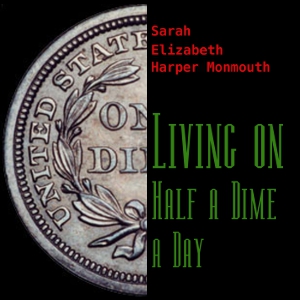
How to live on 5 cents a day! How to survive financial ruin without losing your house! How to keep to a bare bones budget and still have money left over to buy books! Tough questions! They were tough questions even in the 1870’s, when Sarah Elizabeth Harper Monmouth penned her quirky memoir, the subtitle of which was “How a Lady, Having Lost a Sufficient Income from Government Bonds by Misplaced Confidence, Reduced to a Little Homestead Whose Entire Income is But $40.00 per Annum, Resolved to Hold It, Incurring no Debts and Live Within it. How She has Lived for Three Years and Still Lives on Half a Dime a Day.” Sarah Elizabeth (‘Lizzie‘) Monmouth, born in 1829, was a Civil War widow, living on a run-down small farm in New Hampshire, when her investments imploded. She awoke one morning to find herself poor--an old roof above her, “dearer than life,” but “not a dollar of money left.” For months she was “paralyzed with cold, clammy terror . . . stunned and knew not what to do.” Then her “mind stepped to the front with a bold standard displayed.” She said to herself “Understand, once for all, that I rule and make your plans accordingly.” She devised (and stuck to) a YEARLY budget, which consisted of $17 for food, $13 for fuel, and $10 for reading! How she managed this makes sometimes harrowing, sometimes amazing, and always fascinating reading. Food: “a pound of oatmeal cooked on Monday would serve for a dessert through the week.” Shoes: “I took the soles of worn-out rubbers, lined them with flannel, and laced them on my feet as sandals.” Books and magazines were the sole exceptions to her parsimony. “My mind . . . is the humored child. Reading is my salvation from total wreck . . . My one solace and relief in darkest time.” In very cold spells, she would save firewood by crawling into bed with mittens on her hands to “read a while, and when the room became too cold for this, cover all up and think over what I had read. This saved me in a degree from enervating myself further by fruitless poring over poverty and privations.” Lizzie Monmouth’s tale will make you stop and count your blessings... How Lizzie Monmouth surmounted her poverty is an equally fascinating tale. She had an artistic bent and a knack for creating folk art from found materials. Working primarily with donated wallpaper sample books and tissue paper, she filled her home and a nearby church with floral garlands and elaborate paper mosaics featuring homilies and bible sayings. Visitors started coming to see her decorations, which an 1879 correspondent to the New York Times said “produce an effect strange, curious, and wonderfully artistic and beautiful.” Lizzie began charging for home tours and selling picture postcards and pamphlets. The enterprising Mrs. Monmouth said of her new livelihood: “I have honestly endeavored to get a ‘show’ worth a dime.” (Summary by Sue Anderson)The reader thanks the volunteer staff of the New Hampshire Historical Society for help in researching Lizzie Monmouth’s life.
5 episodes
Watkin Tench was an officer of the British Marines in the First Fleet to settle NSW. This is an interesting and entertaining account of his experiences during that time (Introduction by Tabithat)
8 episodes
Hannah Trager published Pictures of Jewish Home-Life Fifty Years Ago in 1926, so the book is a portrait of day to day life for a Jewish family in Jerusalem around 1876. In each chapter, Mr. Jacobs reads a letter from his cousins living in Jerusalem many years earlier, each one teaching his family and friends about a different holiday or tradition of their people. (Introduction by wildemoose)
10 episodes
Anne Catherine Emmerich (1774-1824) was a German Augustinian nun who had visions about Christ's life and death. This book relates her visions regarding the Blessed Virgin Mary, from her marriage to St. Joseph to the events surrounding the birth of Christ.(Introduction by Ann Boulais)
4 episodes

